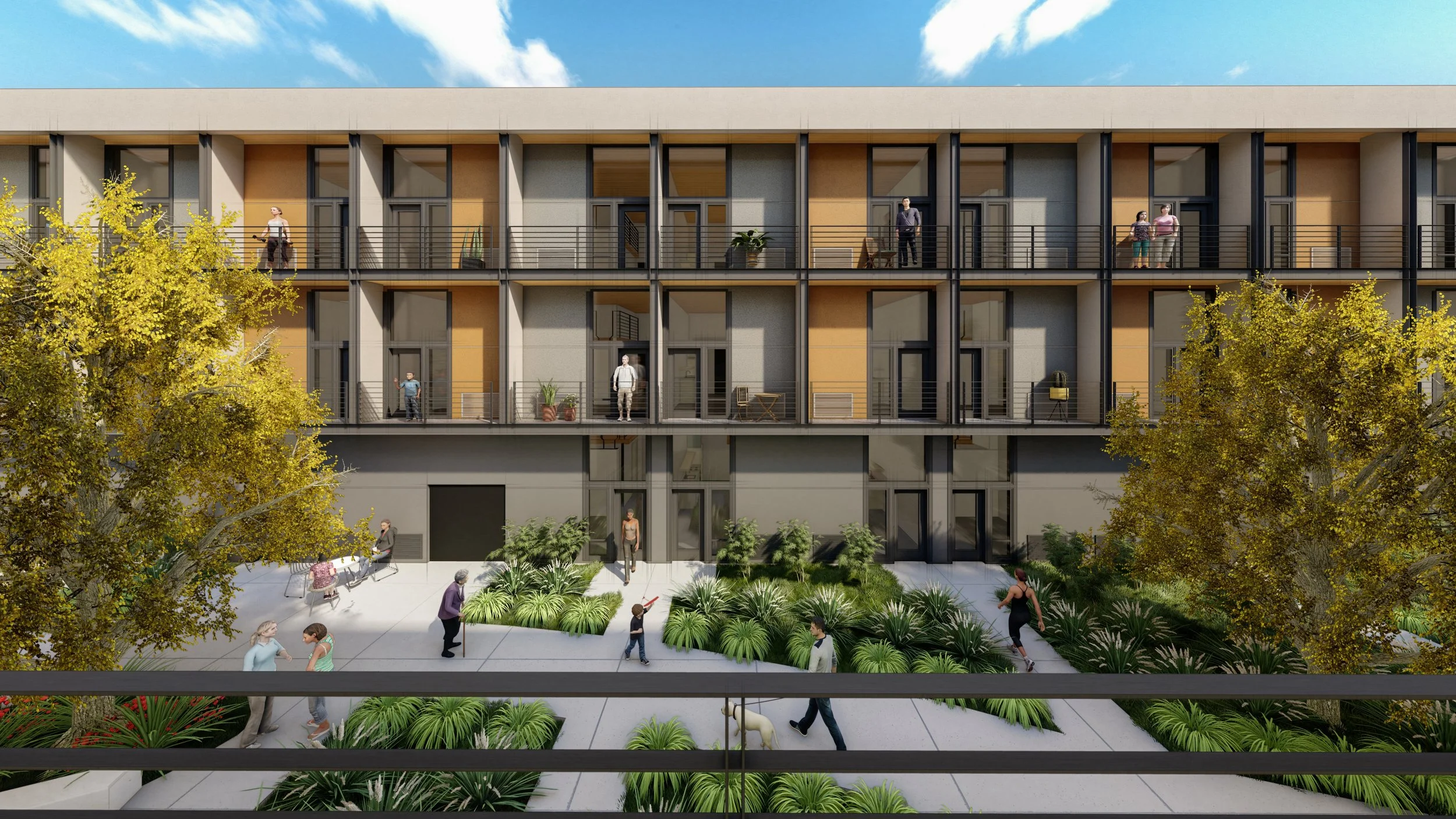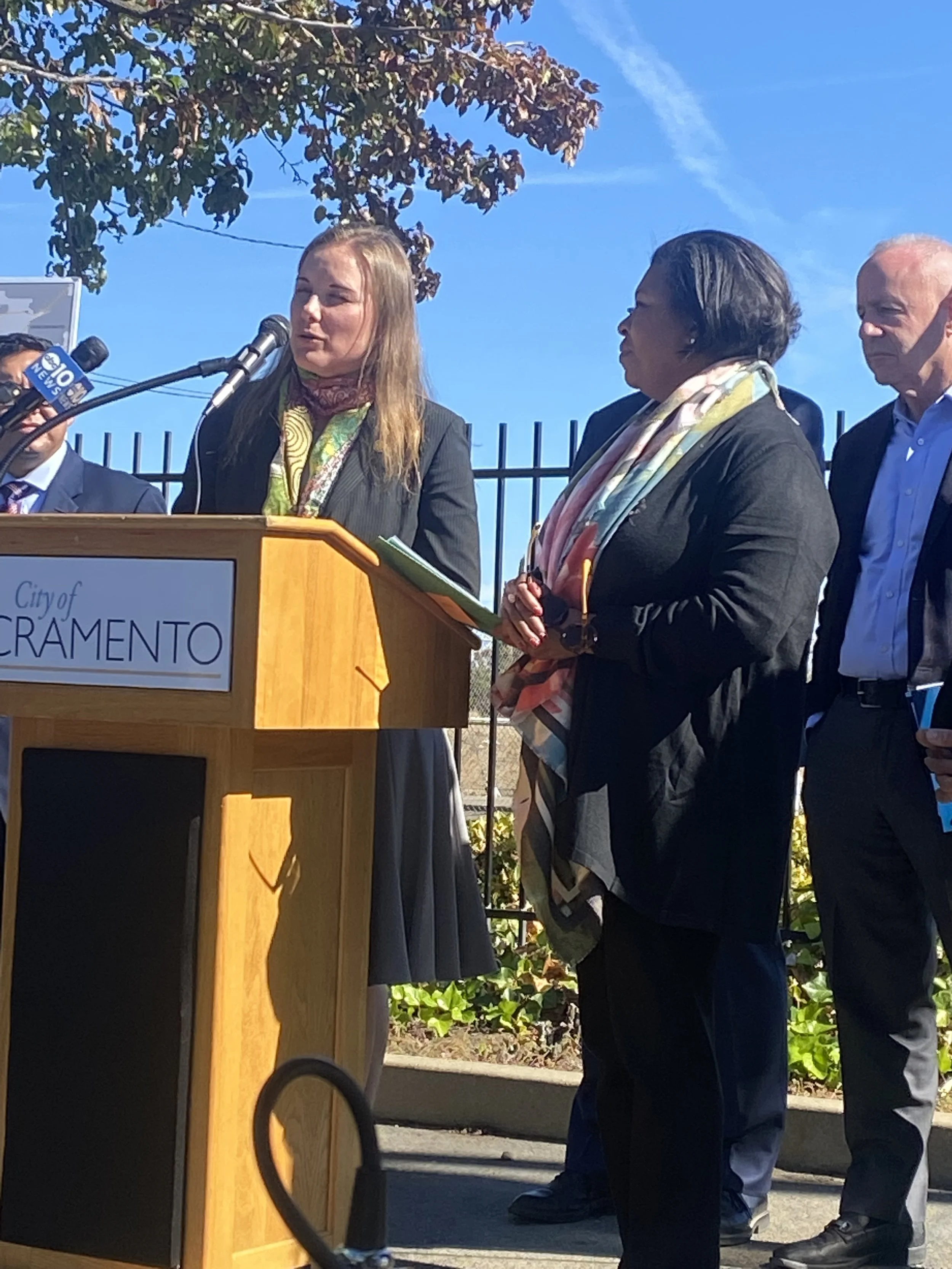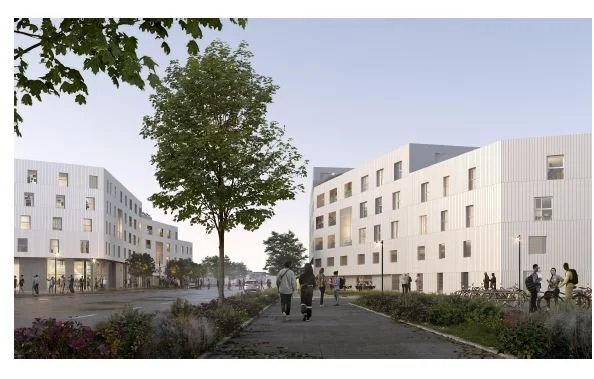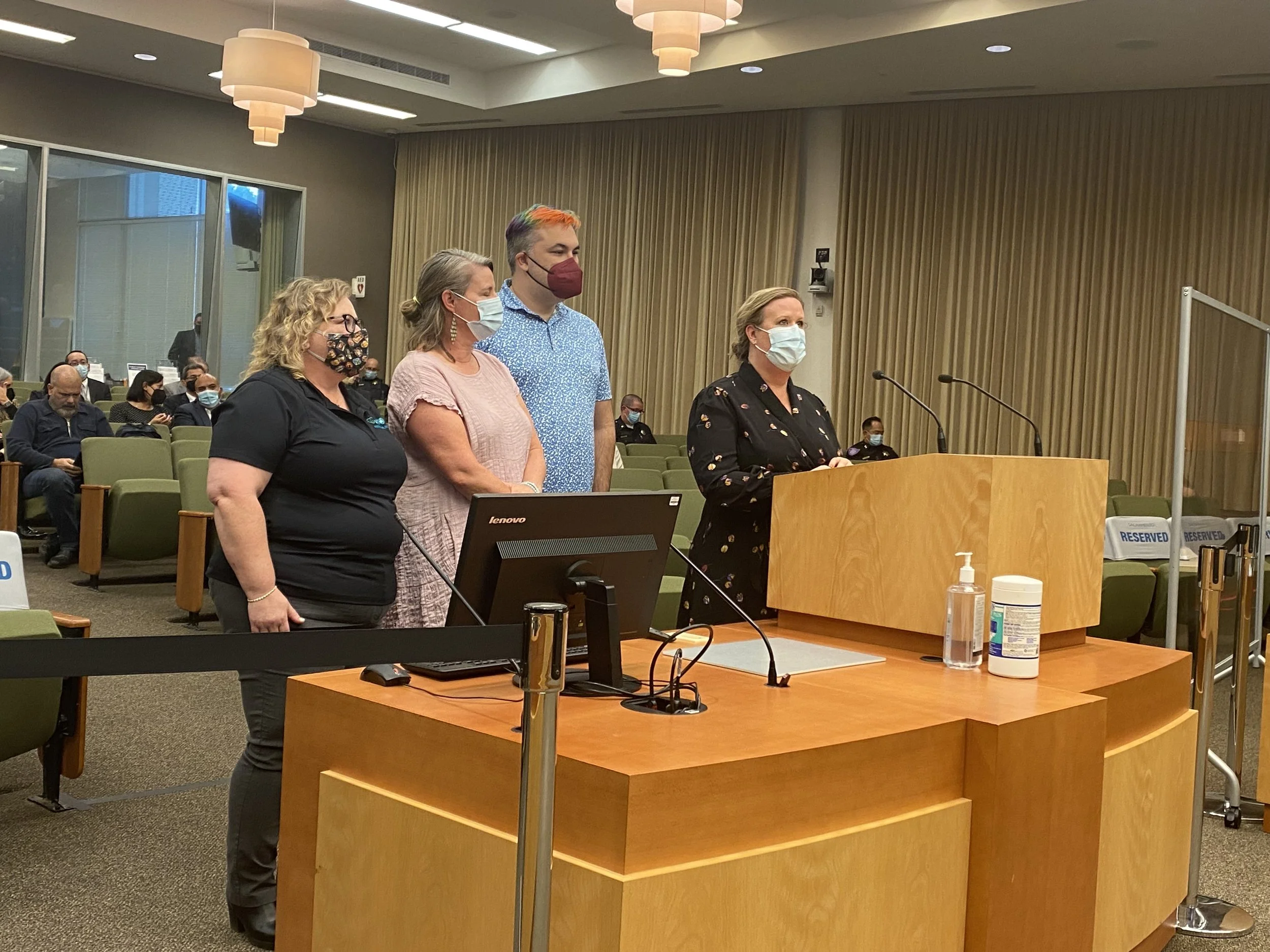Sacramento Council approves $35 million in funding for 820 new affordable housing units
Sacramento (Oct. 25, 2022) The Sacramento City Council Tuesday unanimously voted to approve $35.4 million in funding for 820 new affordable housing units and transitional housing beds in seven projects throughout the city, building on the nearly 2,000 affordable units already in the construction pipeline or completed in recent weeks.
The numbers represent a dramatic boost for affordable housing production and include innovative new concepts in housing construction and financing that will result in units being built at a far lower cost per unit than traditional affordable housing projects. They also include single-family homes scattered throughout Oak Park for low-income buyers and a rehabilitation program to restore houses in disrepair to livability.
“A lot of these housing recommendations are both cost-efficient and can come online quickly,” said Danielle Foster, Housing Policy Director for the City of Sacramento.
The City has permitted more than 2,000 units of low and moderately-priced housing in each of the past two years, a dramatic increase from 481 units in 2019.
Even more stark is the increase in units affordable to very low and low-income residents of Sacramento. According to a progress report recently presented to City Council, a total of 2,482 such units received building permits in 2021 and 2020, a more than ten-fold increase from the 216 permits issued in 2018 and 2019.
An evolving strategy
About $18.83 million of funding for the package approved by the Council on Tuesday will come from money previously set aside to implement the City’s Comprehensive Siting Plan to address homelessness. Research shows that high housing costs are the main driver of the increase in unsheltered homelessness in Sacramento and other West Coast cities. Some of the sites identified in the siting plan for car camping and tiny homes turned out to be too costly. The City has instead focused on more cost-effective options that produce better outcomes for people experiencing homelessness, including an increased stock of motel rooms.
“This is an evolution of the siting plan,” said Councilmember Katie. Valenzuela. “Shelter is not the solution. Housing is the solution. In the end, giving people permanent places to be is the solution.”
Four of the projects approved Tuesday include units specifically set aside for people experiencing homelessness, and one will provide transitional housing beds for homeless individuals through a contract with the Salvation Army.
“This is a strategic and deliberate recommendation in our ongoing effort to reduce unsheltered homelessness,” said Mayor Darrell Steinberg. “Building more permanent housing is crucial to keeping and getting people housed.”
The City has increased its supply of emergency shelter beds from less than 100 five years ago to more than 1,141 beds and safe spaces, but it needs more places for people to go when they are ready to exit emergency services. Staff and elected officials are also nearing completion on a partnership agreement with Sacramento County that will increase emergency shelter, outreach and substance abuse and mental health resources deployed to get people off the streets.
A service hub
One of the most innovative developments funded Tuesday is the KIND Project, a new concept championed by Councilmember Jay Schenirer that will include 216 low-income accessible units planned for a vacant lot owned by Paratransit at 7141 Woodbine Ave. in south Sacramento. The project will be developed by a partnership of developers Fulcrum Properties and Urban Elements, which also has built an “affordable by design” KIND project in West Sacramento and has one under construction in Sacramento at 8th and S streets.
The KIND project in south Sacramento will be deed restricted for low-income residents. The developers will sell it to Paratransit, which will run it in partnership with non-profit groups that can then place their clients into housing units using rent subsidies and provide on-site supportive services. Groups joining forces on the project include Waking the Village, Lutheran Social Services, Resources for Independent Living, the LGBTQ Center, Creative Living Options and CityYear, whose participants can live there and perform service projects for the residents. Ten of the units will be reserved for direct referral from the City’s emergency and transitional sheltering programs.
“The goal is to reduce the operating cost to the non-profits by allowing them to serve people in one place rather than scattered around the city,” said Tiffani Fink, Chief Executive Officer at Paratransit Inc. “We can help more people with the same dollars by doing it more efficiently.”
Fink said she expects the KIND Project to break ground in the spring of 2023 and open in the summer of 2024.
Double bottom line
The Council also voted Tuesday to launch a new loan program to produce investment returns for City government funds while seeding real estate projects that provide a public benefit. The first project funded by the new program will be the 230-unit, mixed-income Gateway apartment development on Stockton Boulevard and Ninth and Tenth Avenues, which will borrow $15 million to be paid back within 10 years. Going forward, the City could make additional five- to 10-year loans from available city funds at a rate of return that is higher than it would otherwise earn through its typical investment pool.
“I’d rather invest our community’s money in our community than on Wall Street,” Mayor Steinberg said.
The Gateway Project will include 92 low-income units, 69 moderate-income units and 69 market-rate units. The low-income units will accept Housing Choice vouchers. Providing the City loan to the project ensures this greater affordability and brings the housing online faster rather than in phases, particularly with the current impacts of climbing interest rates, including for construction loans.
“This is an innovative partnership with the City of Sacramento that will infuse much-needed capital into Stockton Boulevard and jump start housing development along this entire corridor,” said Stuart Liner, managing partner with CTI Housing, a Los Angeles-based developer that plans to build the Gateway Project and two others along Stockton Boulevard. In total, CTI Housing is planning more than 700 new housing units along the Stockton Boulevard corridor.
Another source of funding for the housing package is $1.69 million in redevelopment funds for the Oak Park area, which is represented by Councilmember Schenirer. The majority of that money will be combined with city funds to help subsidize 67 units of affordable housing in the Donner Field project on Ninth Avenue off of Stockton Boulevard. The remainder will fund the construction of 10 houses scattered throughout Oak Park that will be affordable for purchase to very low- and low-income homebuyers, along with an expanded home repair program run through Habitat for Humanity to help low-income homeowners maintain their housing and prevent potential displacement.
Two of the projects approved Tuesday will be built on state surplus sites, one planned for 440 Arden Way in North Sacramento by BRIDGE Housing and another at 805 R St. in Midtown by a partnership of the Capitol Area Development Authority and Mutual Housing California.






